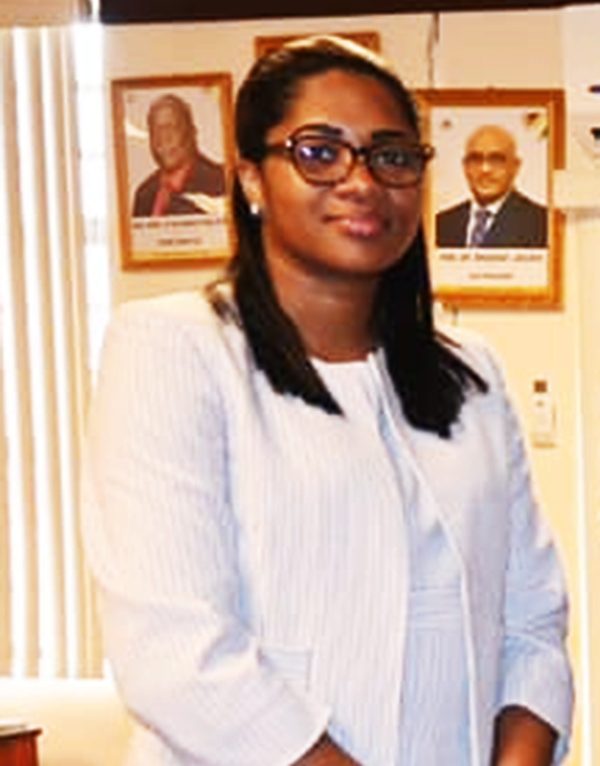The US visa which Minis-try of Home Affairs Permanent Secretary, Mae Toussaint Jr. Thomas used to enter the country on her way to China has been cancelled by the authorities there, well-placed sources say .
After completing her trip to China, Thomas will be returning to Guyana via the United Kingdom and not the United States.
The cancellation of the visa will deepen the dilemma that the government faces as questions will mount as it relates to the confiscation of her cell phone by Customs and Border Patrol (CBP) officers of the Department of Homeland Security.
The government here has maintained official silence on the matter even though some senior officials have confirmed the confiscating of the phone. It was not until a news item on the confiscation of the phone appeared in Thursday’s edition of Stabroek News that the government reached out the US Embassy here on the matter.
On her return, Thomas is expected to provide a report on what transpired.
The Ministry of Foreign Affairs on Thursday sought an explanation from the United States Embassy on why the mobile phone was confiscated but got no substantive information.
Sources say that the embassy said that it had no specific information on the issue to share. It pointed the government to CPB regulations, which provide for searches and confiscation of electronic equipment.
The confiscating of the phone would raise major concerns for the government as it would signal that CBP officials have questions as it relates to Thomas who became the Permanent Secretary in 2020 after the PPP/C entered office. The Ministry is the central focus for law and order and Thomas is the point person for engagement with a large number of international agencies and programmes such as citizen security.
CPB regulations include that, “If CBP officers at a port of entry need more information to determine your admissibility into the U.S., you may be directed to an interview area known as secondary inspection. You could also be subjected to a secondary inspection as a result of a random search. Anyone, including U.S. citizens, may be subject to secondary inspection if the CBP officer has reservations about admitting him or her.
“Secondary inspection is a more detailed inspection to determine admissibility. It allows CBP officers to conduct additional research to verify information without delaying other travelers. During a secondary inspection, the CBP officer may ask you detailed questions about your travel plans and immigration history. You may be asked to produce additional proof of identification and detailed information about the purpose of your visit to the U.S. Both you and your belongings may be subject to a thorough search. Such inspections may include a search of all electronic information stored on your laptop, cell phone or other electronic device,” it adds.




